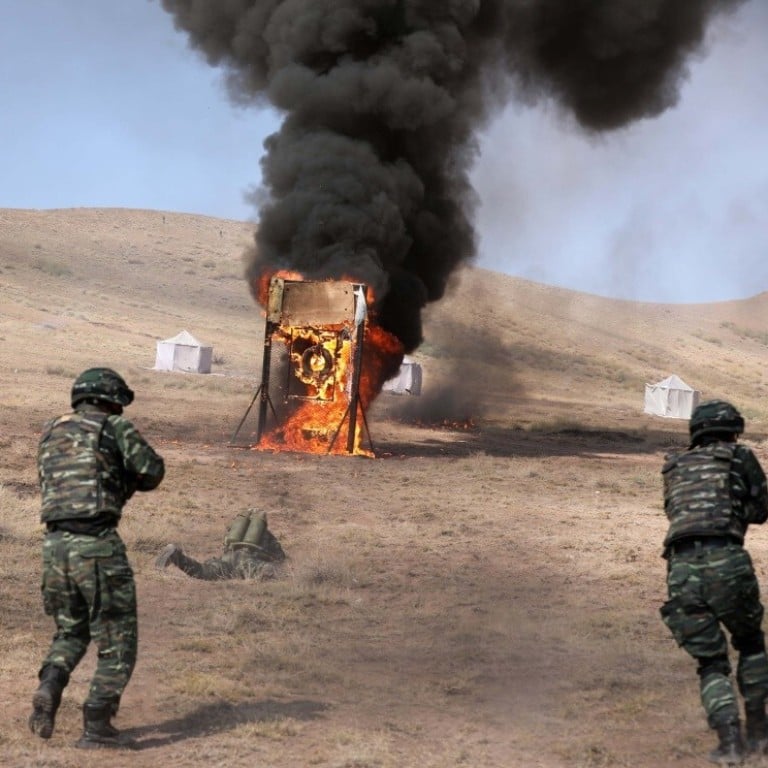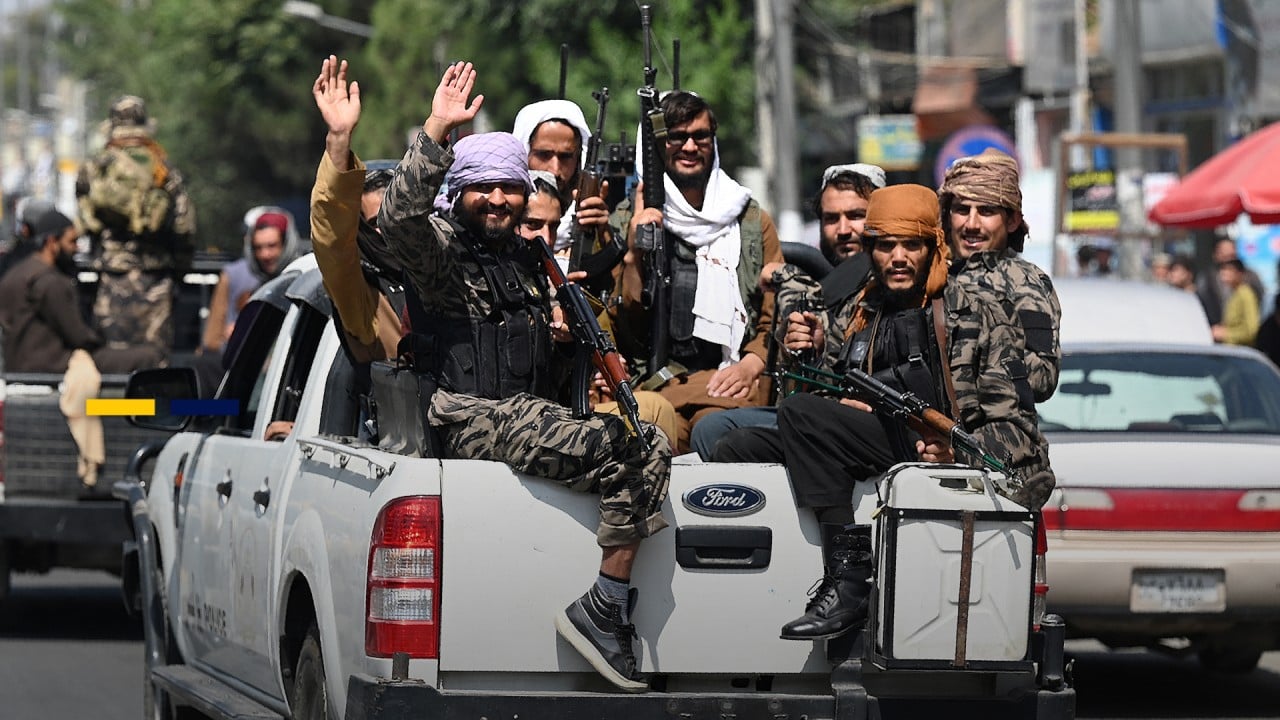
Explainer | Why China is funding a base in Tajikistan
- The country’s long and porous borders with China and Afghanistan are an obvious security concern for Beijing following the Taliban takeover
- Its geography is also an important factor in China’s infrastructure, trade and energy plans for Central Asia
It was the latest sign that Beijing’s footprint in Central Asia is continuing to grow, motivated by its security concerns and economic motives as it seeks to expand the Belt and Road Initiative.
Here are the key factors in their relationship.
Why does Tajikistan matter to China?
This geography, combined a government beset by corruption and factionalism, is an obvious security concern for Beijing, which is worried that extremist groups operating in Afghanistan and Syria – including some Uygur fighters – could use it and other central Asian countries as a route in to China.
China starts anti-terror drill with Tajikistan amid Afghan spillover worries
“For China, security on the border is crucial and lies in its core interests in Central Asia, and the expansion of its presence is the most effective tool it possesses in this case,” according Temur Umarov, a research consultant with the think tank Carnegie Moscow Centre. “Tajikistan is the only country that borders Afghanistan and where China has the most influential role in the region.”
China is the biggest investor in its neighbour, accounting for 37 per cent of total foreign direct investment in 2018.
It is also the largest foreign debt holder, with China Export-Import Bank holding more than US$1.1 billion of Tajikistan’s US$3.2 billion of external debt in 2020, according to data from Tajikistan’s finance ministry.

01:44
Taliban courts China with eye on development projects in Afghanistan
What is their approach to security and extremism?
Human rights groups and Western countries have accused China of crimes against humanity – including mass internment, forced labour and forced birth control campaigns – against Uygurs and other Muslim minorities in the region.
President Emomali Rahmon is a Muslim but his administration has also cracked down on public displays of Islamic belief, including banning beards, hijabs and studying in Islamic schools abroad.
China set for closer interaction with Afghan Taliban, urges US to engage
In 2016, China, Pakistan, Afghanistan and Tajikistan formed an anti-terrorism mechanism to share intelligence and conduct joint training between their armed forces – but its future is now uncertain following the Taliban takeover of Afghanistan.
Shih Chien-yu, an associate research fellow at the Institute for National Defence and Security Research in Taiwan, said after 2016, reports began to circulate about Chinese military presence in Tajikistan, with a base in the east, near the border with China and Afghanistan.
China has repeatedly emphasised it did not have hegemonic ambitions, but Shih said: “The international community may not agree, as the People’s Liberation Army has extended its reach to overseas,” referring to the presence of Chinese police and troops overseas, most notably in Djibouti, where the PLA has its first overseas base.

05:09
Fall of Kabul: Asian countries’ response to Afghan refugees
What are their economic ties?
While security is the top priority, it is also in Dushanbe and Beijing’s interests to develop Tajikistan, which has a mountainous terrain and poor transport infrastructure that adds to the cost of trade.
All the ongoing and proposed belt and road infrastructure projects in the country could help cut Tajikistan’s trade costs by between 4.5 and 5.6 per cent and reduce the time it takes to transport goods by up to four days, according to World Bank data.
A section of the Turkmenistan-China gas pipeline is also being built in Tajikistan and China wants to build road link to Iran that will pass through the country, according to the World Bank.
Meanwhile, Chinese mining companies have secured mining and exploration rights in the country, which is rich in minerals such as silver, lead, zinc and uranium.
China steps up engagement with Afghan Taliban leaders in Qatar meeting
But China’s presence risks a backlash if the locals feel they are losing out on the wealth generated by such projects, according to former US diplomat Susan Thornton.
“While China’s projects and presence are aimed at buying quiescence on its borders, they can also build resentment. China’s heavy-handed diplomatic and coercive human rights practices do not sit well with local populations sensitive to recent colonialism,” she wrote in a commentary for the Brookings Institute think tank.

